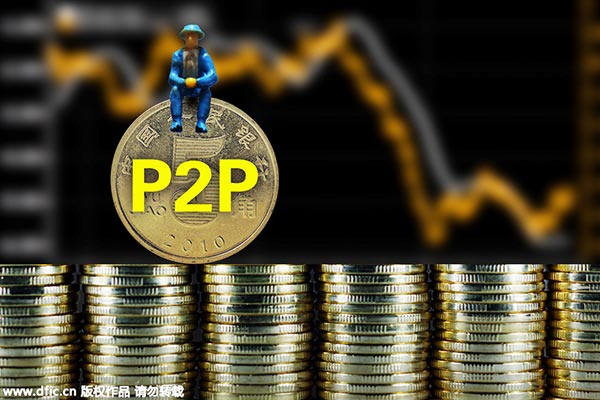China's P2P lending sector faces risk control challenges
By Cai Xiao and Zhang Min (China Daily) Updated: 2016-06-29 10:00
 |
By adopting big-data technologies, Chinese internet financing companies, better known as P2P (peer-to-peer) lenders, offer much-needed liquidity to small and medium-sized enterprises, although risk control remains a challenge.
Big data can be deployed and analyzed for insights that better connect liquidity-starved firms to prospective lenders, therefore enabling better decision-making in business strategies.
"As traditional financial institutions can not cover a large amount of clients (micro and small enterprises), internet financial companies adopting new technologies such as big data can play an important role in offering them the much-needed financial services," said Ba Shusong, chief economist at the China Banking Association.
China has 19 million micro and small enterprises, 78 percent of which are facing difficulties receiving bank loans, according to a report released by Harvard Business Review and CreditEase Corp, a Chinese P2P lending and wealth management company.
"We believe everyone has certain credit and his creditworthiness can be valued. So we are developing big-data technology to help evaluate individuals' creditworthiness," said Tang Ning, CEO of CreditEase.
Joyce Zhang, head of CreditEase's big data innovation center, said that the company collects data from borrowers, cooperative partners, CreditEase's own database and the internet.
Each person's data have to go through risk control assessment. Afterwards, the data "will be analyzed by a financial cloud platform of CreditEase to prompt quicker and more individualized lending decisions", Zhang said.
Li Wenjuan, owner of a brick factory in Gansu province, said her company nearly went bankrupt, and a quick loan from CreditEase helped free her from trouble.
"Now, my business has been good, and because of my good credit records, I can apply for more loans from CreditEase."
Zhejiang Ant Small and Micro Financial Services Group Co, a division of Alibaba Group Holding Ltd once known as Alipay, also aims to build an open platform based on data, technology and trading to serve micro and small enterprises, as well as individuals.
While internet lending firms have become more important, their risk control capabilities remain a challenge.
"We find some internet lending companies set up risk-control models for their clients when the economy is growing fast, so their databases are not mature and may have potential risks," said Ba.
There may be nearly 2,000 Chinese P2P lending companies that may have such potential problems in the near term, according to statistics of P2P Eye, a web portal that tracks the industry.
- VW to fork out $15b over cheatings
- US extends ZTE reprieve from sanctions over alleged violations
- GE to double its procurement from China to $10b around 2018
- Regional jet airliner makes maiden flight
- Yum's mainland stake sale 'postponed'
- China's local consumer brands gain more market share
- Haier to be innovation platform for corporate cultures to coexist
- Fantawild rides boom in Chinese mainland theme parks


















